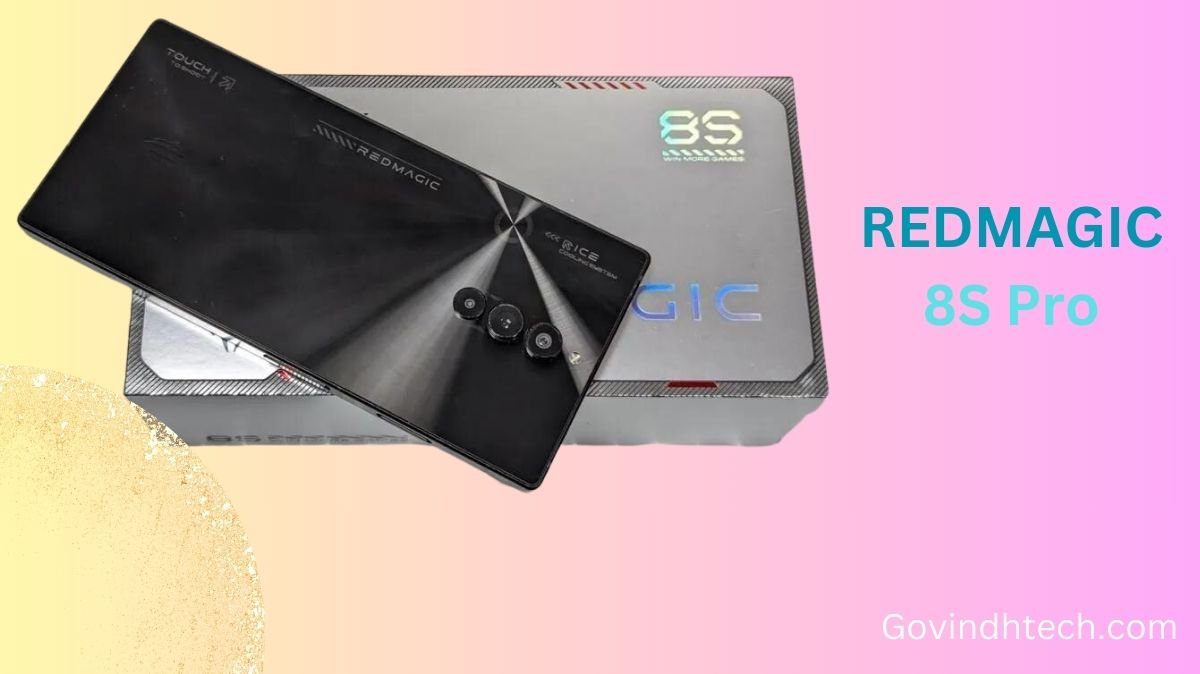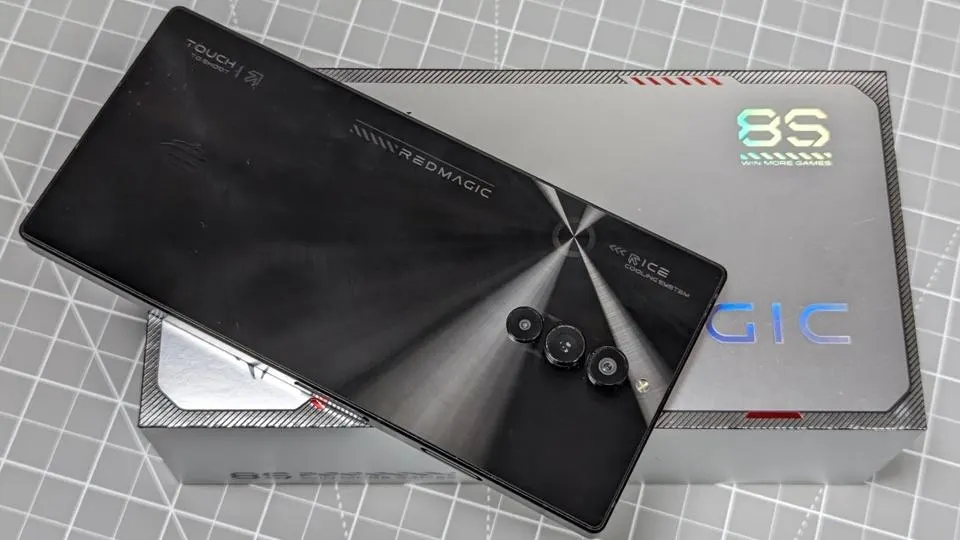The Redmagic 8S Pro is Nubia’s mid-cycle update to the powerful gaming smartphone. It has the same 120 Hz screen with an under-screen selfie camera, 6000 mAh battery, and 65W wired quick charge as the 8 Pro, but it’s 0.6 mm bulkier.
Can it offer a unique gaming experience? Can it be current and retro?
It lacks waterproofing like the earlier model, but many gaming phones have to choose. High-performance gaming devices must quickly disperse heat. A sealed machine cannot support an active cooling fan that moves air through the chassis and over the internals.
Redmagic 8S Pro cooling has been redesigned. Redirected air ducts, heat pipes with a more efficient cooling gel, a larger vapour chamber over the battery, and a graphene layer under the display. All work to remove heat from the casing and keep the handset’s surface cool.
Qualcomm’s “leading” Snapdragon 8 Gen 2 update overclocks the chipset to 3.36 GHz. Its Red Core 2 game CPU handles gaming-specific features like shoulder key inputs, vibration motor activation, RGB lighting, stereo effects, and more, leaving the System on Chip to perform smartphone tasks.
After confirming that the games that worked well on the 8 Pro work just as well, if not better, on the 8S Pro, I decided to test the 8S Pro differently. How well would it handle old games and my childhood favorites?
Redmagic 8S Pro hardware features
Emulation may be cruel. Developers must replicate the exact performance of one system on another while also providing an additional UI layer to control the emulator, such as changing frame rates, choosing the hardware version, loading cassette tape or ROM cartridge games, and integrating with the smartphone environment.
While older 8-bit systems like the ZX Spectrum may have fewer performance concerns, a smartphone is far from the qwerty keyboard-based environment with a digital joystick operating through an RS232 serial interface. On newer devices, you must match the Nintendo 3DS experience while maintaining high frame rates and game pace.
The Redmagic 8S Pro will benefit from a third-party controller. Although my review unit did not include the Redmagic Shadow Blade Gamepad, the firm does. Instead, I’ll use two available controllers. The Razer Kishi, like the Shadow Blade, is a console-style device that splits in half and clips to either end of the screen. It is extraordinarily wide.
Second controller is 8BitDo’s SN30 Bluetooth gamepad. Despite not attaching to the machine, this retro-style gamepad has two analog sticks, a d-pad, four action buttons, and shoulder triggers. For modern games, the Kishi feels natural, but the SN30 is more 80s and 90s.
The 8S Pro recognizes both Bluetooth and USB-C controllers without issue. Android on the Redmagic 8S Pro connects and passes inputs rapidly, however my apps take longer to assign controllers to games.
Over the past month, I’ve used RetroArch, PPSSPP, and Citra to emulate three eras.
Retroarch is a mature multi-platform emulation system that covers practically all video game history. It offers the UI layer and Android hooks, while each emulator has a different “core” you download from the app or external sources. I use Retroarch on older systems. As with all emulation, you now have a ‘raw’ system that requires games to be ripped and moved over or found on the internet.
Chase HQ on the ZX Spectrum runs these older titles well. One of the best titles on the platform that pushes everything, it is. Thus, an experienced player like me knows how fast, responsive, and visually appealing the game should be. Chase HQ passed with flying colours, so we can say, “Let’s Go Mr Driver.”
This whistle-stop check-in continues with Sony PlayStation Portable emulation. PPSSPP is an open-source, mature Android and Windows client. Things get harder now, but the Redmagic 8S Pro handled it well, even allowing upscaling and texture filtering without affecting gameplay. Modernizing the aesthetics may not be for the “pure emulation” crew, but adding FXAA anti-aliasing is wonderful.
Again, the 8S Pro’s increased horsepower lets you customize the emulator without worrying about the phone’s capabilities.
Emulation becomes harder in contemporary systems. Citra is a Nintendo 3DS emulator that brings the dual-screen gaming gadget to a touchscreen smartphone (you can pick how to display the screens). This is when Android emulation reaches its limit. While PPSSPP and Retroarch cores could be set without anxiety, imitating the Nintendo 3DS takes experimentation and decision-making.
Would you rather have precise frame rate? A perfect sound? On-point graphics? Not everything is available in the Redmagic 8S Pro’s specs
Nubia’s gaming performance focus helps here. Most Android phones are slower than the 8S Pro. Comparing Citra on the 8S Pro to the Galaxy S23 Plus shows the 8S Pro’s gaming performance advantage.
I lowered the audio to maintain frame rate!
My emulation seldom used the Redmagic 8S Pro’s full power. It gave me some optional caveats. A good control mechanism can make a game different. Made for mobile games like Genshin Impact, Fortnite, and Mighty Doom, the control schemes have been optimized for touchscreens and gyro sensors. Moving back in time, the on-screen controls work well, but a tactile controller reduces aggravation and makes the game more playable.
Which naturally raises prices. Razer Kishi 2 controllers cost £99, Redmagic Shadow Blades £69, and SN30s £39. The Redmagic 8S Pro seems more like a console than a smartphone thanks to its two plug-in controllers. SN30 delivers a deep throwback experience, but you must set your phone down to use the controller with both hands.
Like choosing between Xbox, Playstation, and Switch, you must decide how you will use your gaming smartphone. As the Redmagic 8 Pro showed earlier this year, it offers great value for the top native Android games. The Redmagic 8S Pro can be used to explore gaming history and use an Android smartphone in the background.


